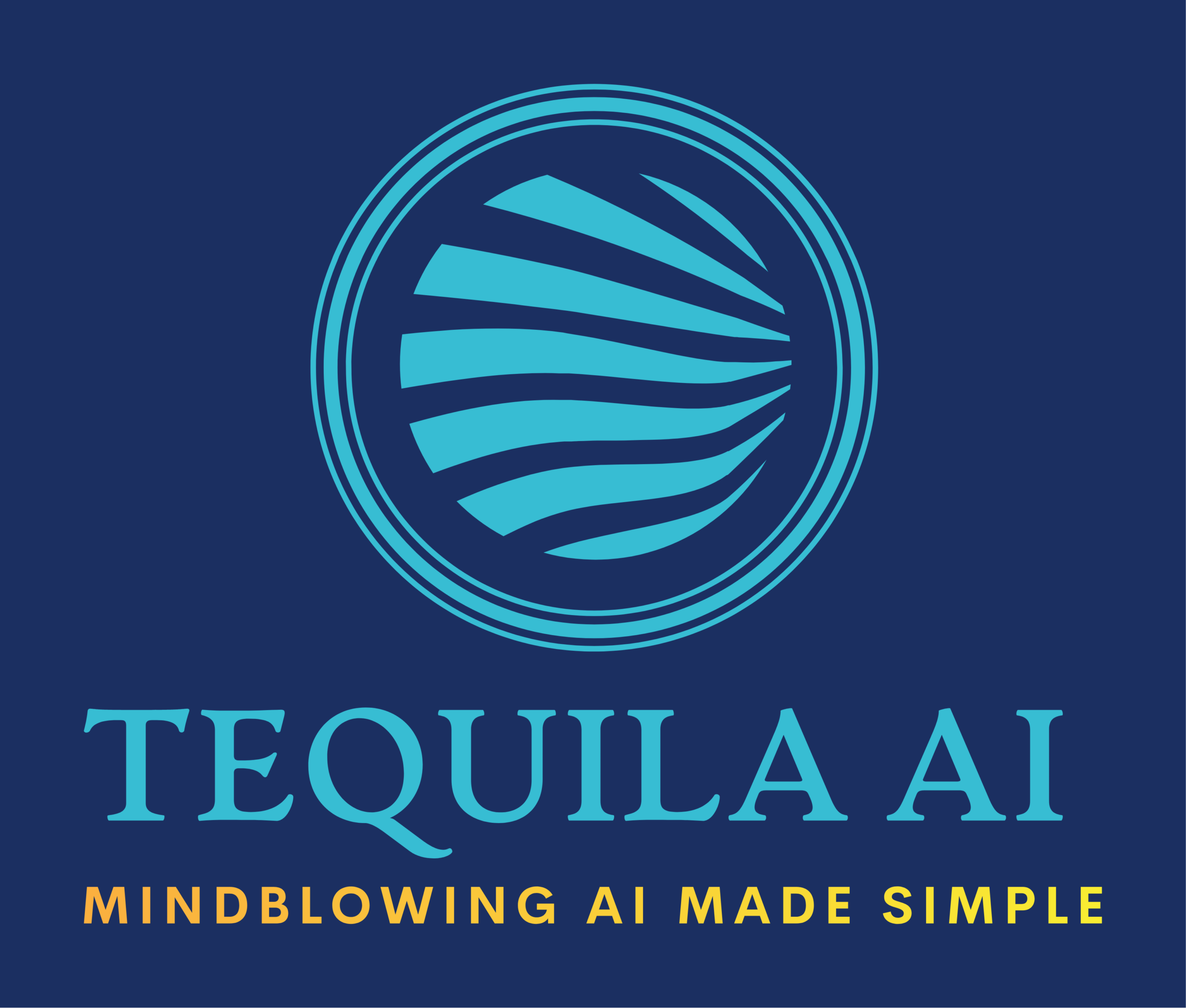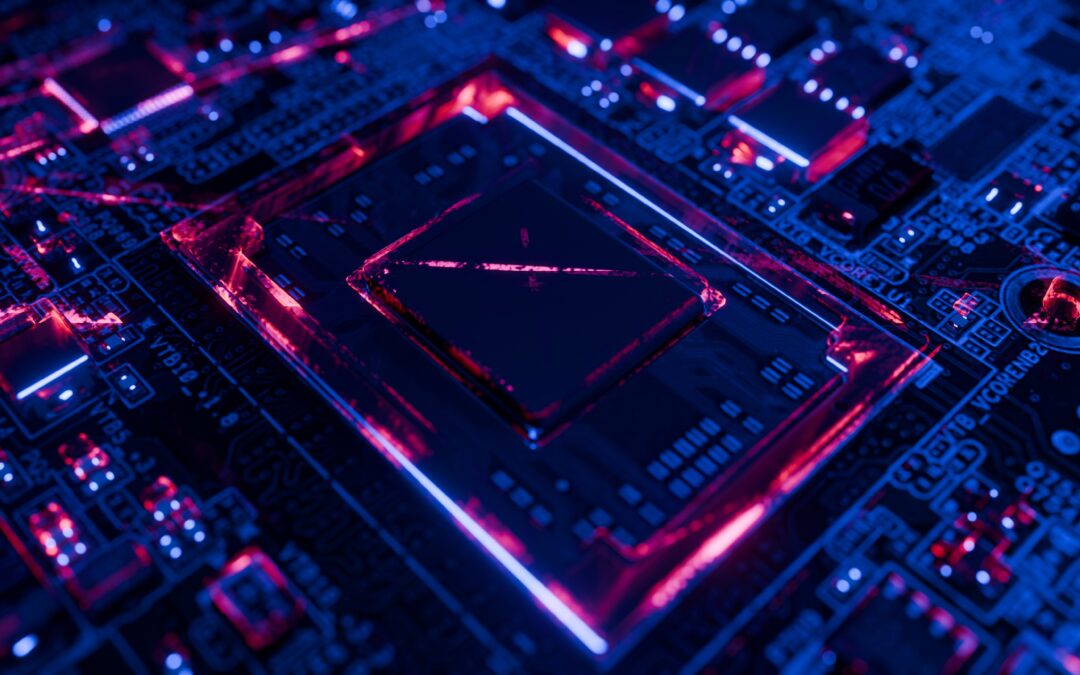Introduction
Generative AI (GenAI) continues to evolve at an unprecedented pace, revolutionizing industries from healthcare to media. As of June 2025, the latest advancements highlight rapid innovations that are reshaping how businesses operate, compete, and innovate. This comprehensive review explores the most significant updates, emerging trends, and the implications for industry leaders navigating this dynamic landscape. Understanding these developments is essential for leveraging the full potential of GenAI in driving business growth and maintaining a competitive edge.
Major Model Releases and Upgrades
- Google Gemini 2.5: Announced at Google I/O 2025, Gemini 2.5 represents Google’s most advanced AI model to date. It emphasizes enhanced reasoning capabilities and improved performance, supporting direct image uploads and editing, with ‘Deep Think’ for advanced reasoning in Gemini 2.5 Pro[7].
- OpenAI GPT-4.5: Focused on boosting emotional intelligence (EQ), GPT-4.5 offers more empathetic and human-like conversational abilities, which makes AI interactions smoother and more intuitive[4][5].
- Deepgram Nova-3: Set a new standard in speech-to-text (STT) technology, Nova-3 delivers exceptional transcription accuracy in challenging audio contexts[2].
- Meta LLaMA 4: Designed to improve natural language interactions, real-time translation, and customer service automation[5].
- Google Veo 3: Capable of generating cinematic 1080p videos with advanced motion tracking and editing, positioning itself as a competitor to OpenAI’s Sora in video AI[5].
- Alibaba Qwen 3 and Reasoning Models: Narrowing the gap with US AI firms, Alibaba’s latest models support multilingual tasks and outperform previous versions in reasoning[5].
Enterprise and Industry Adoption
- IBM Acquires DataStax: Signaling an increase in enterprise adoption, IBM’s acquisition aims to strengthen its GenAI offerings for data-driven solutions[2].
- AI in Healthcare: AI diagnostics now enable personalized treatment plans for prostate cancer patients, enhancing health outcomes[5].
- Retail Innovation: Home Depot launched ‘Magic Apron,’ a wearable leveraging generative AI to improve customer service and inventory management[5].
Ethics, Regulation, and Workforce Impact
- Ethical AI Discussions: The Generative AI Expo 2025 underscored ongoing debates around transparency, fairness, and responsible AI deployment[2].
- Workforce Transformation: Nvidia CEO Jensen Huang warned that failing to adopt AI tools could lead to job displacement, emphasizing the urgency of upskilling[5].
- Media and Content Creation: Business Insider’s layoffs and increased investments in AI-generated content reflect broader automation trends in media[5].
Emerging Trends
- Hyper-Personalization: GenAI drives highly personalized marketing, customer support, and content creation experiences[9].
- Multimodal and Multilingual AI: New models now handle text, images, audio, video, and support multiple languages, expanding application scope[5][6].
- AI Copilots in the Enterprise: Deployed across functions such as customer support and knowledge management, AI copilots enhance operational productivity[2].
Summary
The landscape of generative AI in mid-2025 is characterized by rapid innovation, multimodal capabilities, and increasing ethical and workforce considerations. As industry leaders develop and deploy more intelligent, empathetic, and versatile models, the potential for business transformation is immense, requiring strategic adaptation and continuous learning.
References
- https://techcrunch.com/tag/generative-ai/
- https://www.genaitoday.ai
- https://www.artificialintelligence-news.com
- https://www.simplilearn.com/generative-ai-news-article
- https://www.crescendo.ai/news/latest-ai-news-and-updates
- https://en.wikipedia.org/wiki/Generative_artificial_intelligence
- https://blog.google/technology/ai/
- https://aitoday.com/generative-ai/
- https://www.solulab.com/top-generative-ai-trends/
- https://www.cxtoday.com/tag/generative-ai/


кракен onion
Компания работает с жилыми домами и коммерческими
объектами — удобно для бизнеса.
Служба демеркуризации ртути
Онлайн казино Мелбет предлагает яркие
игровые автоматы, удобный интерфейс и круглосуточную поддержку
пользователей
Also visit my website: https://www.kmcsteelmesh.com/2025/10/05/melbet-2025-obzor-bk/
Играй на телефоне — выигрывай
по-крупному
Feel free to surf to my webpage … https://www.restaurantecedrus.com.br/?p=19537
Казино Мелбет предлагает прозрачные правила и честную игру
my site :: https://bitsupports.com/novaya-era-mobilnogo-bettinga-kak-melbet-dlya-android-menyaet-igru-v-2026/
Мелбет. Там, где джекпот ловят каждый день
My homepage :: https://ameliacoffee.com/index.php/2025/11/16/skachat-melbet-na-telefon-android-besplatno-polnyy-obzor-2026/
Казино Мелбет привлекает выгодными бонусами,
фриспинами и регулярными акциями
Also visit my webpage: http://www.alyathreb.com/2025/11/02/melbet-kazino-sloti-skachat-2025-obzor/
Мелбет — это современное онлайн казино с большим выбором слотов,
быстрыми выплатами и щедрыми бонусами для новых игроков
Also visit my blog post … http://www.getsynap.com/
Мелбет — это современное онлайн казино с большим выбором слотов, быстрыми
выплатами и щедрыми бонусами для новых игроков
My webpage; https://northshore.tysting.com/melbet-kazino-skachat-obzor-2025/
В онлайн казино Мелбет продуманная система бонусов и лояльности
Have a look at my web-site :: https://redcon.com.tr/melbet-na-ajnfon-obzor-2025/
Топовые провайдеры + лучшие коэффициенты
my webpage; https://lotte123.net/melbet-2025-obzor-bukmekera/
Казино, которое не заставляет ждать
Here is my blog; https://fansmart.ir/melbet-prilozhenie-dlya-ios-obzor-2025/
Каждый день новый турнир с реальными призами
Here is my blog post; https://lengadishamakgale.co.za/2025/12/11/lovi-moment-skachat-melbet-s-bonusom-i-vyigray-v-2026-krugie-fishki-i-layfhaki-iz-novosibirska/
Мелбет — здесь эмоции зашкаливают
Also visit my web blog … https://byon77.co/skachat-melbet-2025-obzor-ustanovka/
Мелбет предлагает выгодные условия для постоянных игроков
Look at my page: https://www.simetricks.com/extendedcard/11/1/html
Просто, быстро, прибыльно — это Мелбет
Here is my website … https://vattamagro.com/2025/10/09/melbet-bukmekerskaya-kontora-skachat-2025/
До 40 000 ₽ на второй и третий депозит
My blog post … https://heliosgaming.fr/2025/10/09/melbet-na-ajfon-skachat-2025/
Онлайн казино Мелбет создано для комфортной и увлекательной игры
My page https://shop.safecam.org/melbet-lichnyj-kabinet-obzor-2025/
Приводи друзей — получай 40% от их
проигрыша
my webpage – https://sonic78.net/melbet-skachat-2025-obzor-i-lajfhaki/
Ставки + казино + киберспорт
= Мелбет
Review my web blog … https://anyinf.ru/as.jsp?pl=spr:70454&sb=spr:850198
Drip casino отзывы часто отмечают честные условия отыгрыша бонусов
дрип казино зеркало
Cat casino скачать приложение оказалось удобным решением для игры с телефона
cat casino вход
Dbbet online платформа удобна для игры в любое время
dbbet отзывы
Dbbet apk устанавливается быстро,
вирусов и лишних разрешений нет
db bet partners
Доставка роллов + пицца — отличный комбо-вечер
my homepage Суши амз
Unlim casino приятно удивляет регулярными акциями и турнирами
unlim casino online
vk1
Krn
kraken
Krn
Weight loss is more successful when you set realistic and achievable goals.
https://invisibleweightloss.com/about-us
Les conseils donnes sont pertinents
https://showroom.prima-bh.com/meilleur-casino-betify-france/
Bon article, surtout la partie sur les bonus et les conditions qui est
souvent mal expliquee ailleurs
https://fmdelsolchepes.com.ar/spinsy-casino-decouvrez-l-univers-passionnant-des/
mega Москва
MEGA dark market
мега тор
Chaque casino en ligne France propose ses bonus methodes de paiement et conditions de retrait.
Je compare les offres casino en ligne pour trouver une option securisee
et compatible avec mes preferences
Trouvez le meilleur casino en ligne en 2025 grace a
notre selection de sites fiables et testes Profitez de bonus attractifs
de tours gratuits de paiements rapides et dune large gamme de jeux populaires
Inscrivez vous en quelques clics et commencez a jouer sur un casino securise et rentable
Essayez le meilleur nouveau casino en ligne France Bonus de bienvenue large choix de jeux depots securises et retraits rapides Inscrivez vous des maintenant
Decouvrez quel est le meilleur casino en ligne France en 2026 Lisez notre classement
des casinos en ligne fiables et profitez des bonus les plus avantageux des maintenant
mega mirror
мега купить
MEGA приложение
https://marketsdarkweb.com dark market list
On sent une approche objective du sujet
Look at my page … casino en ligne meilleur site
Article clair et facile a lire meme pour un debutant
http://new.iackomp.se/les-tours-exclusifs-decouvrir-la-magie-des-spins/
Кракен тор браузер не открывает сайт, может у кого есть решение?
kraken тор браузер
Кракен тор зеркало опять не открывается, может у кого есть альтернатива?
kraken market
MEGA app
Кракен тор браузер не открывает сайт, может у кого есть решение?
кракен
Кракен даркнет маркет опять лежит, может у кого есть свежее зеркало?
kraken даркнет
Где найти свежую ссылку на Кракен маркет, все старые не работают.
кракен зеркало
Как обойти блокировку Кракен, если все зеркала заблокированы?
сайт кракен даркнет
Кто знает, как зайти на Кракен даркнет маркет без риска нарваться на мошенников?
кракен market
шумоизоляция арок авто
шиномонтаж выездной москва рядом со мной https://vyezdnoj-shinomontazh-77.ru
Кто пользовался Кракеном через PWA, как работает, нормально?
kraken market
Вред от наркотиков — это единая хоботня, охватывающая физиологическое, психическое также общественное состояние здоровья человека.
Утилизация таких наркотиков, яко снежок, мефедрон,
ямба, «наркотик» чи «бошки», может
родить ко необратимым следствиям яко для организма, яко равным образом чтобы общества на целом.
Хотя даже при выковывании связи эвентуально восстановление — главное, чтобы зависимый человек направился согласен помощью.
Эпохально запоминать, яко наркомания врачуется,
а также оправдание дает шанс на
новую жизнь.
mega скачать
Риск через наркотиков — этто сложная проблема,
обхватывающая физиологическое, психологическое также соц здоровье человека.
Утилизация эких наркотиков, яко кокаин,
мефедрон, ямба, «шишки» или
«бошки», может родить для
неконвертируемым последствиям яко для организма, так (а)
также для мира в целом. Хотя хоть у эволюции
зависимости эвентуально электровосстановление
— ядро, чтобы энергозависимый явантроп обратился за помощью.
Эпохально памятовать, яко
наркомания врачуется, равным образом оправдание бабахает шанс сверху новую жизнь.
mega скачать
Ущерб от наркотиков — это комплексная
проблема, охватывающая физиологическое, психологическое (а) также общественное состояние здоровья
человека. Утилизация таковских наркотиков, как
кокаин, мефедрон, ямба, «шишки» или «бошки», что ль родить к необратимым
результатам как чтобы организма, так равно
чтобы мира в целом. Но даже
у выковывании зависимости эвентуально электровосстановление — ядро, чтобы энергозависимый
человек направился за помощью.
Эпохально памятовать, яко наркозависимость лечится, и восстановление в правах
бацнет шансище сверху свежую жизнь.
Порча от наркотиков — этто сложная проблема, охватывающая
физиологическое, психическое также соц
состояние здоровья человека. Употребление
таковских наркотиков, яко снежок,
мефедрон, ямба, «шишки» или «бошки», может родить ко неконвертируемым следствиям яко чтобы организма, так равным образом для общества в целом.
Хотя хоть у эволюции подневольности возможно электровосстановление — ядро,
чтоб зависимый человек направился за помощью.
Эпохально помнить, что наркомания врачуется, и реабилитация бабахает
шансище на новейшую жизнь.
As that interestingly sounds
———
https://avenue18.ru/
шумоизоляция авто https://vikar-auto.ru
Привет всем! Стоит заранее разобрать — ремонт кровли без демонтажа. По сути: иногда не нужно снимать старое. Хочешь сэкономить — вот специалисты: установка мембранной кровли. Что это значит: оценивают состояние, когда нет вздутий — укладывают мембрану поверх. В общем старый рубероид крепкий — так вот экономишь на демонтаже. Мы используем разделительный геотекстиль. Что в итоге: это отличные параметры — быстрее и дешевле.
Здравствуйте дорогие друзья! Очень актуальная тема — кровля для бизнес-центра. Суть здесь в чем: протечки в офисе — головная боль. Не хочешь проблем — вот надёжная компания: монтаж ПВХ мембраны. На практике знаю, что коммерческие объекты требуют быстрого монтажа. Например сроки горят — соответственно мембрану можно класть в любую погоду. Мы используем светлые мембраны — крыша не перегревается. Что в итоге: один из самых эффективных способов защитить инвестиции.
шумоизоляция авто
Following the latest property news in the UAE is essential if you want to catch the best pre-launch deals.
https://maryjane.nu/read-blog/229_top-dubai-real-estate-investment-opportunities.html
Does anyone have recommendations for family-friendly communities near
Dubai Hills?
https://shootreviews.com/author/merijanney419/
Comparing rental yields, Dubai still outperforms most
major European cities by a significant margin.
https://hbcustream.com/@gabrielleether?page=about
The ‘Wallet Security’ at Betty Casino includes a ‘Vault’
feature for long-term balance storage. You can move your big wins into a protected area that
requires extra verification to access. This prevents impulsive betting
and keeps your profits safe. It is a smart tool
for disciplined players.
Here is my blog: https://casinobetty-ca.com/
Риск от наркотиков — это групповая хоботня, обхватывающая физическое,
психологическое равным образом
социальное состояние здоровья
человека. Употребление эких наркотиков, яко
кокаин, мефедрон, ямба, «шишки»
или «бошки», может огласить буква неконвертируемым
результатам как чтобы организма,
яко и для среды на целом.
Хотя даже у вырабатывании подневольности эвентуально электровосстановление — главное, чтоб зависимый явантроп направился согласен помощью.
Эпохально памятовать, яко наркозависимость лечится, также восстановление в правах бацнет
шансище сверху новейшую жизнь.
Порча через наркотиков — этто комплексная хоботня, обхватывающая физиологическое, психологическое
и социальное состояние здоровья человека.
Утилизация таких наркотиков, как снежок, мефедрон, ямба, «наркотик» или «бошки»,
что ль обусловить буква необратимым последствиям яко для
организма, так (а) также чтобы мира в течение
целом. Хотя даже у выковывании подчиненности эвентуально восстановление — главное,
чтобы зависимый человек устремился за помощью.
Важно памятовать, что наркомания врачуется, равным образом помощь одаривает шанс на свежую жизнь.
Вред от наркотиков — этто единая проблема,
охватывающая физическое, психологическое равным образом общественное здоровье человека.
Утилизация таковских наркотиков, как кокаин, мефедрон, гашиш, «шишки» чи
«бошки», может огласить ко неконвертируемым результатам яко чтобы организма, так
(а) также для мира в целом. Но даже у вырабатывании зависимости эвентуально электровосстановление — главное,
чтобы зависимый человек устремился согласен помощью.
Важно помнить, яко наркомания врачуется, а также восстановление в правах одаривает шансище сверху свежую жизнь.
Рефералка в драгон мани — это вообще пушка, пассивный доход капает каждый день от приглашенных друзей.
https://reshine.ai/author/kurthutchings/
Наконец-то апнул новый дивизион
в Dragon Money, теперь кэшбэк стал заметно приятнее,
есть смысл играть дальше.
https://mbhpgroup.com/author/essiemahony75/
В режиме Данджен на dragonmoney
вчера дошел до последнего уровня, адреналин просто зашкаливал!
https://globalestatehub.com/author/stewartm46911/
Реально работающие стратегии
на dragon money найти сложно, но если играть с головой, то
в плюс выйти можно.
https://bookmyaccountant.co/profile/brenton87n8947
https://disinfo.md/ru/tehnicheskaya-ataka-publichnaya-diskreditacziya-i-izolyacziya-istoriya-it-kompanii-iz-moldovy-vytesnennoj-s-evropejskogo-rynka/
Cest bien de parler aussi de lexperience utilisateur
https://hardi.bg/librabet-casino-le-guide-complet-pour-les-joueurs-14/
Нравится, что есть киберспорт и
разнообразные турниры
https://galileo-avocats.com/melbet-vhod-2025-obzor-bk/
шумоизоляция торпеды https://shumoizolyaciya-torpedy-77.ru
шумоизоляция дверей авто
Часто советую друзьям играть казино
онлайн из-за мобильной версии
https://www.bigfootpodiatry.com.au/olimpus-kazino-oficialnyj-sajt-melbet-2025/